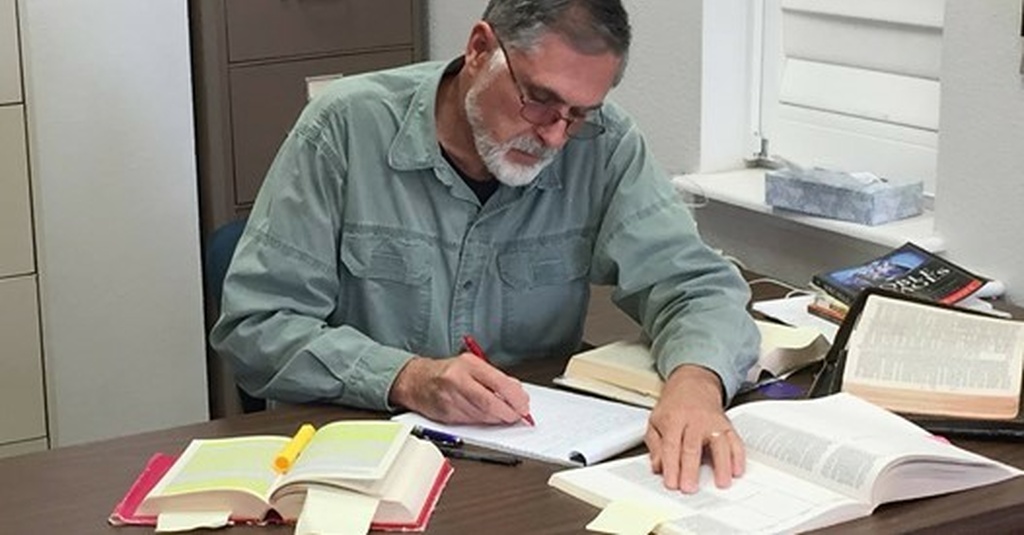
The "Big Picture" of the Kingdom of God
The Old Testament will always seem obscure to us if we think of it only as God’s words to Hebrews in a unique time and circumstance. It was given to a particular time and people but for all God’s people.

- Mark R. Rushdoony
The Old Testament will always seem obscure to us if we think of it only as God’s words to Hebrews in a unique time and circumstance. It was given to a particular time and people but for all God’s people. I would like to share my father’s concluding comments on Zephaniah chapter 2, in which judgment is prophesied on all nations surrounds Judah. He brings the point of Zephaniah’s warning home to us:
How can we pray that God vindicate America when His Word is forbidden in most of our schools? America seeks her own will and glory. What can we expect under those circumstances? The word of the prophet Zephaniah to the nations of old and to Judah and Jerusalem, the word of the prophet Zephaniah to America is this, “Seek ye the Lord. Seek ye the Lord. Repent, repent. Seek not your own glory nor your own vindication, but seek ye first the Kingdom of God, and His righteousness, and all these things shall be added unto you.” God will never vindicate you. God will vindicate Himself. And this is our hope. When we are faithful to Him, He will be faithful to us. When we seek His honor and His glory in our midst, He will manifest His glory and His power in our midst.
Zephaniah further reveals that God sweeps clean all man’s works and burns everything which He Himself has not planted. What can stand in the face of that? Nothing could stand in Judah and Jerusalem. Nothing stood in Judah and Jerusalem because all that was there was man’s planting, not the Lord’s. God says today to America and to you and to me, “Everything that is not of my planting I shall sweep clean” (cf. also Matt. 15:13). The Lord says through His servant Paul concerning the Last Judgment, “Everything that you build, everything that you plant in terms of yourself, that day will consume. You shall only be as one saved by fire if you build your house of stubble and of straw” (see 1 Cor. 3:12–15). For only that which is planted of God shall stand that day. The Lord shall sweep clean in America and in your life and mine everything that is not of His planting. We need to search our souls, to examine our hearts, asking, “Is this of the Lord’s planting?” (from Sermons in Zephaniah, Haggai, and Zechariah, pp. 19-20)
One of my father’s great strengths was his focus on the “big picture” of the Kingdom of God, its growth, and certain victory. That is the legacy we at Chalcedon endeavor to maintain.

- Mark R. Rushdoony
Mark R. Rushdoony graduated from Los Angeles Baptist College (now The Master’s College) with a B.A. in history in 1975 and was ordained to the ministry in 1995.
He taught junior and senior high classes in history, Bible, civics and economics at a Christian school in Virginia for three years before joining the staff of Chalcedon in 1978. He was the Director of Chalcedon Christian School for 14 years while teaching full time. He also helped tutor all of his children through high school.
In 1998, he became the President of Chalcedon and Ross House Books, and, more recently another publishing arm, Storehouse Press. Chalcedon and its subsidiaries publish many titles plus CDs, mp3s, and an extensive online archive at www.chalcedon.edu. His biography of his father will be published later this year (2024).
He has written scores of articles for Chalcedon’s publications, both the Chalcedon Report and Faith for all of Life. He was a contributing author to The Great Christian Revolution (1991). He has spoken at numerous conferences and churches in the U.S. and abroad.
Mark Rushdoony has lived in Vallecito, California, since 1978. His wife, Darlene, and he have been married since 1976. He has four married children and nine grandchildren.